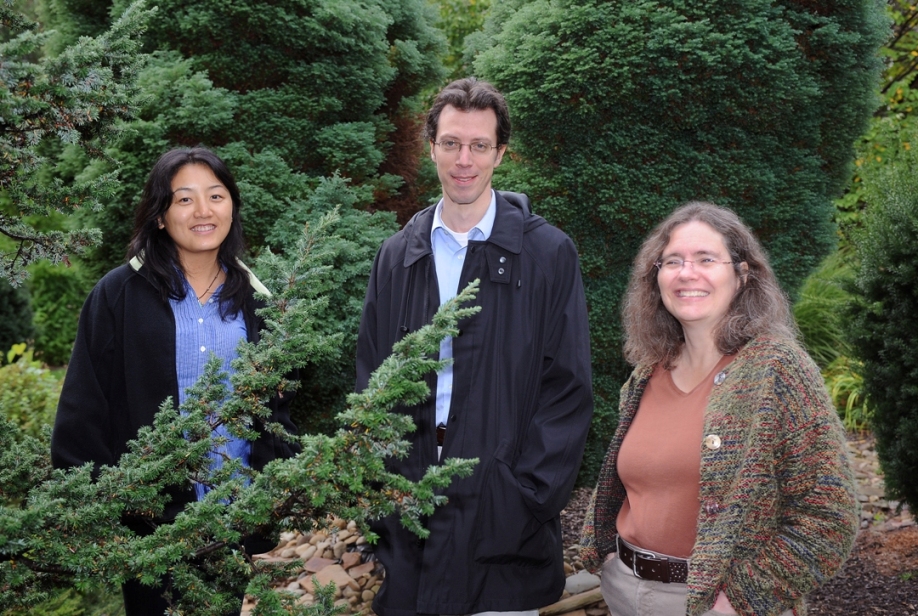Kent State Receives $1 Million Grant from Department of Energy
Posted Oct. 7, 2010Three Kent State University professors recently received funding from the U.S. Department of Energy (DOE) for a molecular analysis of carbon consumption. The three-year grant, awarded by the DOE’s Office of Biological and Environmental Research, will provide funding of $1,075,638 for the project.
 Christopher Blackwood, assistant professor in the university’s Department of Biological Sciences, is the principal investigator for the project “Tracking Down Cheaters: Molecular Analysis of Carbon Consumption by Organisms That Do Not Contribute to Extracellular Enzyme Pools.” Blackwood will collaborate on the study with two Kent State colleagues, professor Laura Leff and assistant professor Xiaozhen Mou, and with assistant professor Gail Rosen of Drexel University.
Christopher Blackwood, assistant professor in the university’s Department of Biological Sciences, is the principal investigator for the project “Tracking Down Cheaters: Molecular Analysis of Carbon Consumption by Organisms That Do Not Contribute to Extracellular Enzyme Pools.” Blackwood will collaborate on the study with two Kent State colleagues, professor Laura Leff and assistant professor Xiaozhen Mou, and with assistant professor Gail Rosen of Drexel University.
According to Blackwood, the inspiration for the project was to better understand the carbon cycle and how it is affected by the behavior of microbes. “A lot of the carbon dioxide in the atmosphere comes from decomposition of plant material, where it is locked up as complicated plant biochemicals,” Blackwood said.
Most microbes cannot digest food particles inside their bodies. Instead, the digestion is performed by enzymes they secrete outside their bodies. After this enzymatic digestion, the microbes can take up the small degraded chemicals that are released. Cheaters are organisms that take up degradation products without contributing to the enzyme pool – essentially, they are getting a free meal, thanks to the investments of other microbes. The amount of carbon taken up by cheaters has never been directly measured. “Current models of carbon dynamics assume that cheaters are unimportant, but we know they are there doing something,” Blackwood said. “This research will analyze these cheaters and their role in decomposition.”
“We are really interested in what kinds of things affect the process of decomposition and whether carbon is released into the atmosphere or whether it is stored in the environment,” Leff said.
Blackwood, who started at Kent State in fall 2006, said he started thinking and writing about this issue three years ago. “This is an interesting field of study because there are lots of unknowns regarding microbial communities. It’s only been within the last 15 to 20 years that we have had the tools to probe their genetic makeup.”
The grant will fund a postdoctoral research fellow and will allow undergraduate and graduate students at Kent State to gain valuable experience in the study of microorganisms and the carbon cycle.
“We now have access to tools that we didn’t have just five years ago,” Leff said. “It’s really cutting-edge science. This research could have implications for water and soil management in the future.”
“From the global climate change perspective, this research is an important step in understanding some of the basic questions regarding microbial communities and the carbon cycle in general,” Blackwood said. “With increasing carbon dioxide in the atmosphere, it’s critical to gain a better understanding of what factors determine the fate of organic carbon.”
# # #
Media Contacts:
Christopher Blackwood, cblackwo@kent.edu, 330-672-3895
Bob Burford, rburford@kent.edu, 330-672-8516

Facebook
Twitter
Google+
LinkedIn
Instagram
YouTube
More Ways to Connect